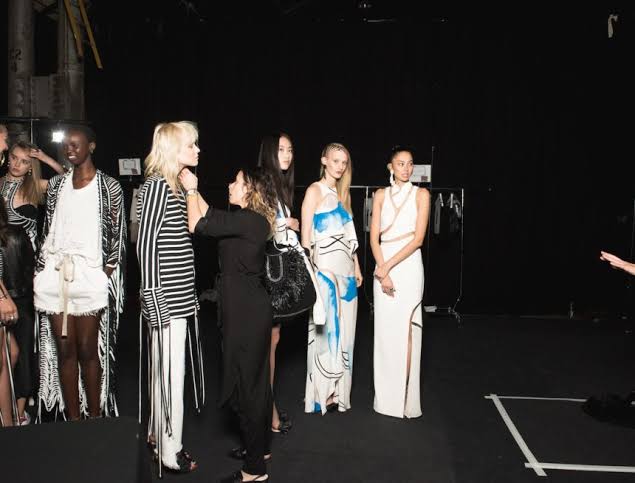The BBC’s week after week The Boss arrangement profiles diverse business pioneers from around the globe. This week people address Yael Aflalo, CEO and originator of design brand Reformation.
Yael Aflalo was on an excursion for work in China when her thought for a reasonable design mark truly took off.
The Californian-based architect had just begun a shop selling repurposed vintage dresses when they went on that outing very nearly 10 years prior, and was struck by how much contamination was associated with the creation of garments.
“I was crying and felt dismal about the contamination brought about by the style business,” they says. “I could see that natural nourishment was on the ascent and I thought there should have been manageability choice in design, so I set going to fabricate that business.”
It gave their the drive to transform their single shop into the Reformation style name that currently tallies vocalist Rihanna, entertainer and businessperson Jessica Alba and Meghan, Duchess of Sussex, as aficionados of its plans. These depend on eco-accommodating textures and incorporate remains bound for landfill. Yearly deals are said to surpass $150m (£112m) this year.
Yael accepts they was bound to set up their very own organization, following in the strides of their folks who additionally ran their very own dress store.
“My entire family are business people, thus, really for me, going into business felt more normal than finding a new line of work,” says the quick talking south Californian, who has a two-year-old girl with spouse and Reformation inventive executive Ludvig Frossen.
At 21, (they’re presently 41) they began Ya-Ya, a contemporary style discount name, after a stretch as a model. “I really, as, strolled into a store and said ‘would you like to purchase this skirt?’ and they purchased 40 of them and afterward 40 transformed into 120.”
At the point when they verified greater requests they would acquire cash from relatives. “That would prop me up for a month and afterward I’d go to the banks.”
The name later bragged a great range stockists remembering Browns for London, and Barneys and Nordstrom in the US. In any case, following 10 years they shut it after it had amassed obligations of “two or three million dollars”.
To “make sense of” how to rescue the circumstance Yael says they “did a great deal of contemplating and soul looking however realized I’d overcome this and it would be fine”.
To clear the obligations they propelled a few distinct organizations including a vintage store and a private mark for attire retailer Urban Outfitters. That private mark likewise created money to set up Reformation in 2009 after that excursion to China.
During the early Reformation days, Los Angeles-based Yael says perhaps the best obstacle was attempting to discover a producer ready to make modest quantities of item.
“No one would make my garments and I was wiped out on the off chance that it. Rather I enlisted a shaper and sewer and made them in LA.”
Quick forward to 2019 and the brand is sold through its site and 18 stores in the US, Canada and UK – where it has one shop in London’s Notting Hill – and utilizes in excess of 500 individuals. It additionally sells discount, for example by means of Selfridges, Farfetch and Net-a-Porter.
Maintainability goes through the center of the organization, which it tracks and distributes in normal reports. “We set out to make a cognizant way of life brand where ‘green’ design didn’t mean bargaining style,” they says.
The organization says it has been carbon unbiased since 2015, Reformation’s bundling is produced using 100% reused paper items and compostable bio-based materials. It likewise opened LA’s first feasible sewing processing plant, controlled by vitality from inexhaustible sources, and requires cleaning supplies and espresso to satisfy its natural guidelines.
In 2018, Reformation’s yearly maintainability report indicated that 79% of its garments were made in Los Angeles, remembering 22% for its own processing plants. In the mean time, 19% was made in China, with the rest in France, Italy, Morocco, Thailand and Turkey.
Reorganization says it requires its providers to meet a thorough screening procedure and worldwide measures on working practices.
Elijah is described as having lived during the reigns of Israelite Kings Ahab, Ahaziah, and Jehoram, during the first half of the 9th century BCE.
Disclaimer: The views, suggestions, and opinions expressed here are the sole responsibility of the experts. No journalist was involved in the writing and production of this article.

